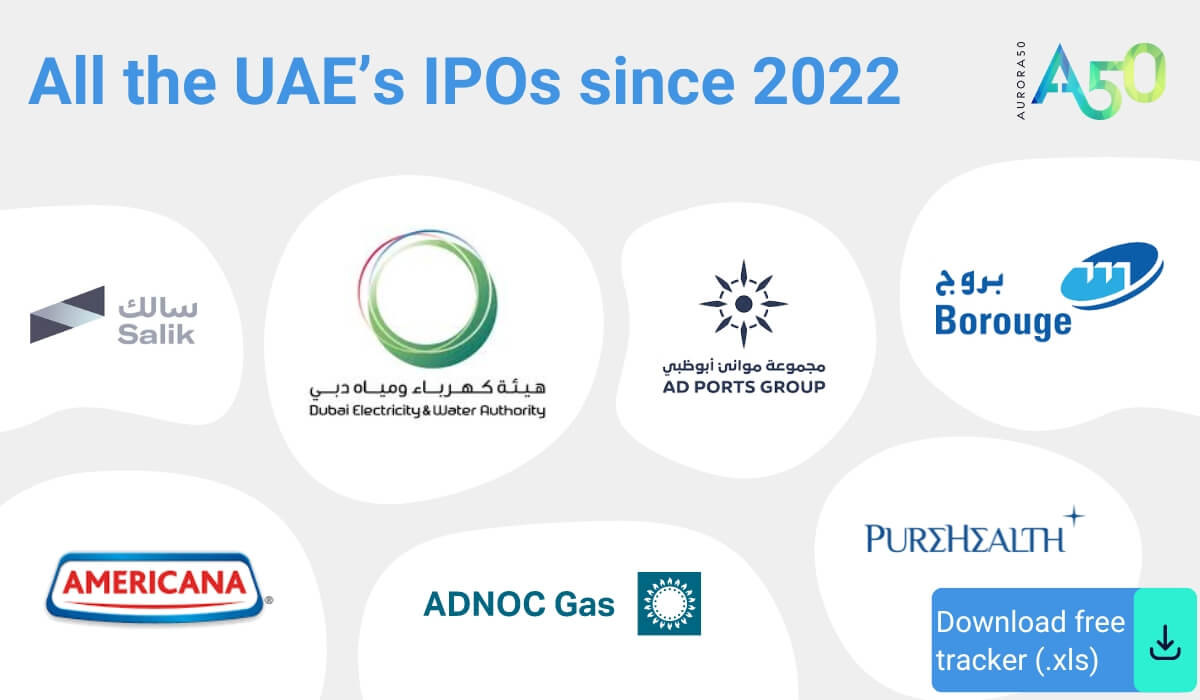UAE private sector commits to 30% women executives (SDG 5 pledge)
Suzanne Locke 24 January 2022
Eighteen major local and international private-sector companies, all operating in the UAE, have voluntarily pledged to the Gender Balance Council to put women in 30 percent of their leadership positions by 2025.
Commenting on the news, Aurora50’s co-founder, Diana Wilde, told
Dubai Eye’s Business Breakfast that achieving gender parity at the executive level signals a “huge business opportunity” for the UAE, but also shows “our commitment to becoming more globally competitive”.
The UAE companies that signed up for the 30 percent pledge
Local companies:
- Dubai Holding
- Dubai Multi Commodities Centre (DMCC)
- Majid Al Futtaim Holding
- Masdar
International companies operating in the UAE:
- BASF
- General Mills
- General Motors
- Mars
- MasterCard
- Michelin
- Mondelez International
- Nestle
- PepsiCo
- Schneider Electric
- Standard Chartered Bank
- Unilever
- UPS

Companies that signed the GBC SDG 5 pledge on 18 January 2022
(The 18th company has not yet been named.)
The actions that all 18 pledge to work on include:
- Ensuring equal pay and fair compensation
- Promoting gender-equitable recruitment and promotion
- Making gender balance ‘mainstream’ through company policies and programmes
- Being transparent about progress with the other companies involved in the pledge and with the government.
Pipeline needed for schemes like 25×25
It’s a challenge being played out in other parts of the world too. For instance, in the UK the 25×25 campaign – launched in 2014 and backed by Unilever, BP, NatWest, Morgan Stanley and GSK – aims to ensure 25 FTSE 100 companies have a female chief executive by 2025.
But building the pipeline of women who will become future leaders is the ultimate challenge in all countries – and it is one that Aurora50 has “stepped up” to tackle in the UAE, says Ms Wilde.
P&L skills are key
“Mid-level women need opportunities, and access to the type of experience they will need higher up,” Ms Wilde says. “Then, on top of this access, we need to encourage women to step forward, to inspire and educate them to take on those roles.
“One of the biggest issues we see is for women at the mid-level to get the same access to key executive skills as men. For instance, profit and loss (P&L) or budget experience is a must for executive roles – yet sometimes, people in the same position in the team are not given the same opportunities. It may not be intentional, but it happens.
“Starting women early matters even more. Getting to the C-suite requires significant proven experience and responsibility for leading the business – and this takes time. There is more opportunity to get more women into the pipeline if we can start them early.”
UAE a key global economy in next 50 years
Last week’s news of 18 private-sector companies signing a pledge for 30 percent of women leaders is the result of more than four years of work by the UAE to prioritise the UN’s 17 Sustainable Development Goals by 2030, with the UAE Gender Balance Council heavily involved.
“Eliminating obstacles to achieving gender balance is essential for economic prosperity, social cohesion, and sustainable development,” she added.
The UAE aims to become a key global economy in the next 50 years. Last year, it climbed eight positions on the UN Development Programme’s Gender Inequality Index, ranking first in the Arab world and 18th globally in 2020 for commitment to advancing women’s rights.
Women ‘affected’ by crises like Covid-19
HE Mona Al Marri, Vice President of the UAE Gender Balance Council and Chairperson of the Global Council on SDG 5, said the pledge “confirms the important role that the private sector has in achieving the UAE’s vision and goals”.
She added: “The Covid-19 pandemic has demonstrated the need to work together to come up with innovative solutions to some complex challenges facing our world. It has also demonstrated the extent to which women are affected by crises. There are real gender gaps in leadership positions across the world, with women occupying only 22 percent of CEO-level leadership positions.
“We need to escalate efforts to increase the number of women in senior and middle management roles, as more women in leadership means stronger organisational performance and thriving economies.”
The pledge was signed during a ceremony hosted by the UAE Gender Balance Council, the UAE’s National Committee on SDGs and the UAE’s Private Sector Advisory Council on SDGs.
HE Abdulla Lootah, Director General of the Prime Minister’s Office at the Ministry of Cabinet Affairs, and Vice President of UAE National Committee on SDGs, said women played a “pivotal role in the advancement of countries and societies”, and that success with the UN’s sustainable development goals “requires joint efforts” to “empower women working in the private sector”.
Find out more about NOORA, our corporate women’s network.


















![[Aurora50 template] Fatima Al Fahim [Aurora50 template] Fatima Al Fahim](https://aurora50.com/wp-content/uploads/2022/02/2022_06_03_EWD_3-Fatima-AlFahim.jpg)


